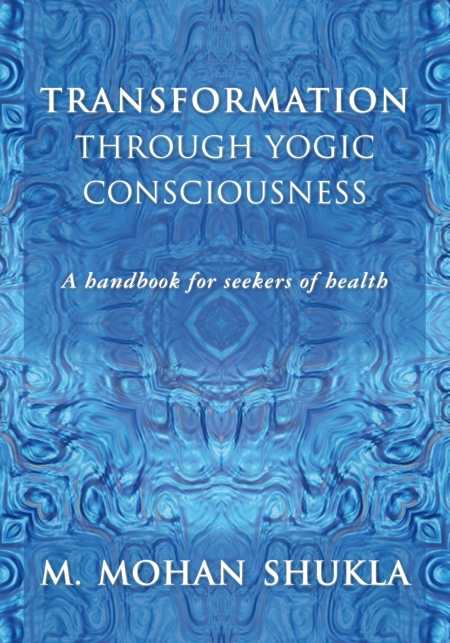Transformation through Yogic Consciousness
A handbook for seekers of health
M. Mohan Shukla, a self-described yogi, corporate leadership teacher, and life coach, has written an impressive textbooklike volume on overcoming obstacles to self-realization. The scope, quality, and accessibility of the author’s science-based recommendations for ways to improve one’s well-being, in combination with his true spiritual wisdom, makeTransformation through Yogic Consciousness a near-epic addition to the mind, body, and spirit library. For anyone seeking greater happiness and self-awareness, the forty-four exercises interspersed throughout the book make it worth acquiring.
The well-written book, which has very few typographical or grammatical errors, is organized into four sections. The first section, “Health, Yog and Consciousness,” begins with several open-ended questions for contemplation and a thirty-question test readers can take to determine their state of health. Shukla chooses to use the word “yog” instead of yoga throughout the book when writing about the broader philosophy of yoga, because he believes it is the most accurate and traditional spelling, as the final vowel in Sanskrit is assumed rather than stated. As yog is an unfamiliar word, Shukla might have created more of a comfortable rapport with the reader by using the word “yoga.”
Section one elaborates on all aspests of health, including the mental, emotional, and spiritual, as well as the deeper meaning of and uses for pain. Shukla explains how the brain works in complicated, often fascinating, detail. He finishes the section with an intellectually heavy explanation of yogic consciousness and a compelling list of the very appealing attributes of someone living in that state.
Section two, “Science of the Mindbody,” is a daunting one-hundred pages of serious scientific immersion into “Awareness, The Brain, Filters, Emotions, and Conditioning.”
In the third section, which is arguably the best one in the book, Shukla shares the “Six Principles of Yogic Consciousness.” They are self-knowledge, self-mastery, compassion, forgiveness, gratitude, and congruence. A chapter is devoted to each. Despite an abundance of platitudes, overlap, and redundancy, the profound beauty and wisdom of Shukla’s prose may help the reader feel at least a little bit transformed by his ideas.
The final section includes an excellent abridgement of Patanjali’s sutras, an introduction to hatha yoga, the physical postures, and a few pages on the different types of meditation.
Transformation through Yogic Consciousness has an attractive blue-and-white cover. The back copy, however, is a little difficult to read, and such a good book should have a more vibrant and professional looking cover.
Reviewed by
Patty Sutherland
Disclosure: This article is not an endorsement, but a review. The publisher of this book provided free copies of the book and paid a small fee to have their book reviewed by a professional reviewer. Foreword Reviews and Clarion Reviews make no guarantee that the publisher will receive a positive review. Foreword Magazine, Inc. is disclosing this in accordance with the Federal Trade Commission’s 16 CFR, Part 255.


